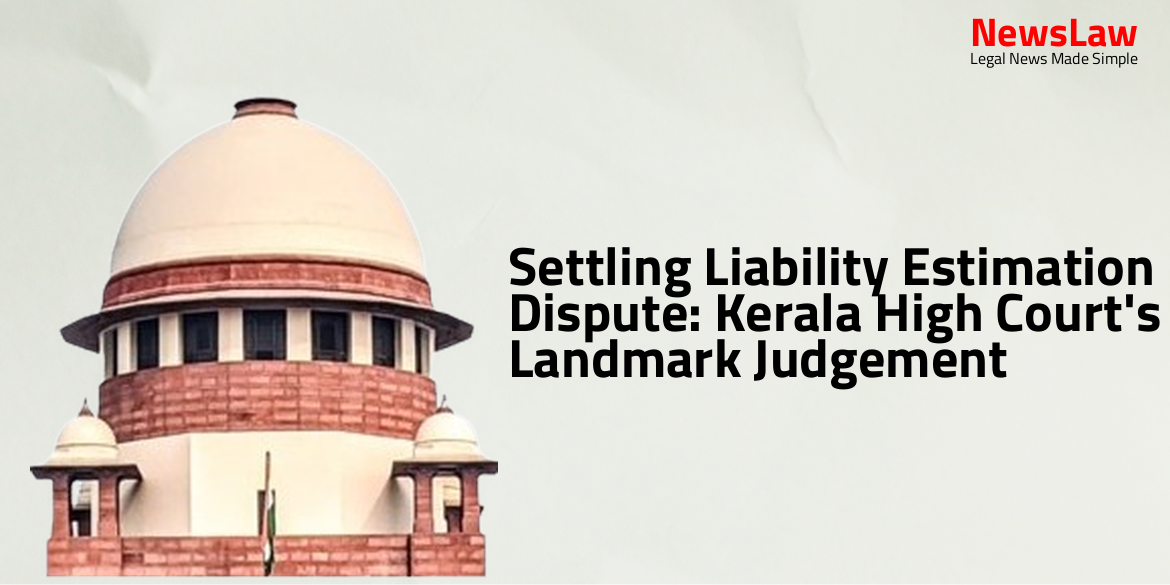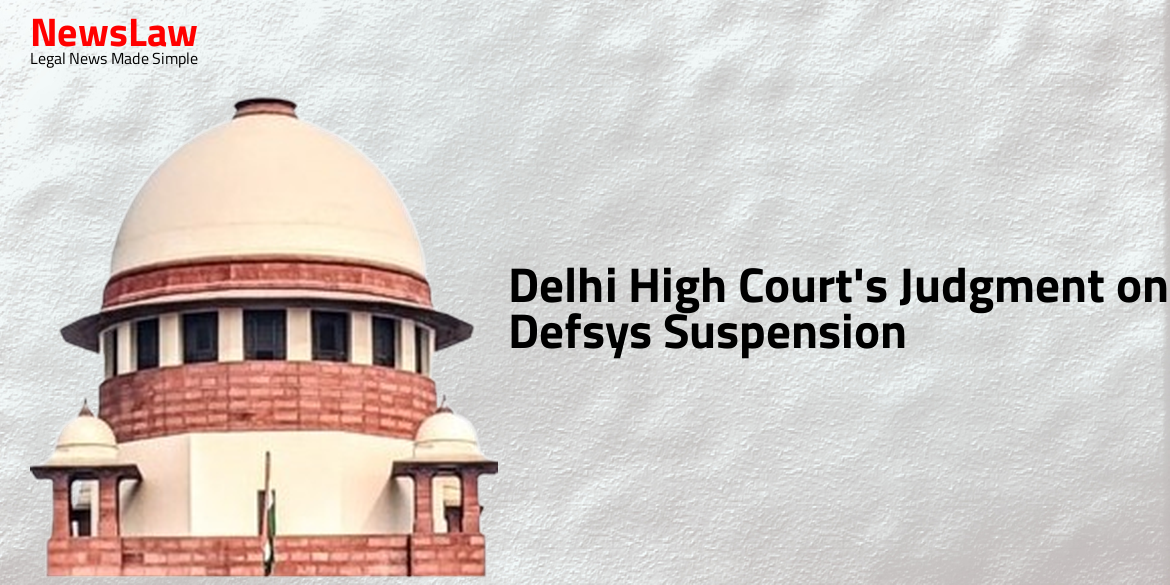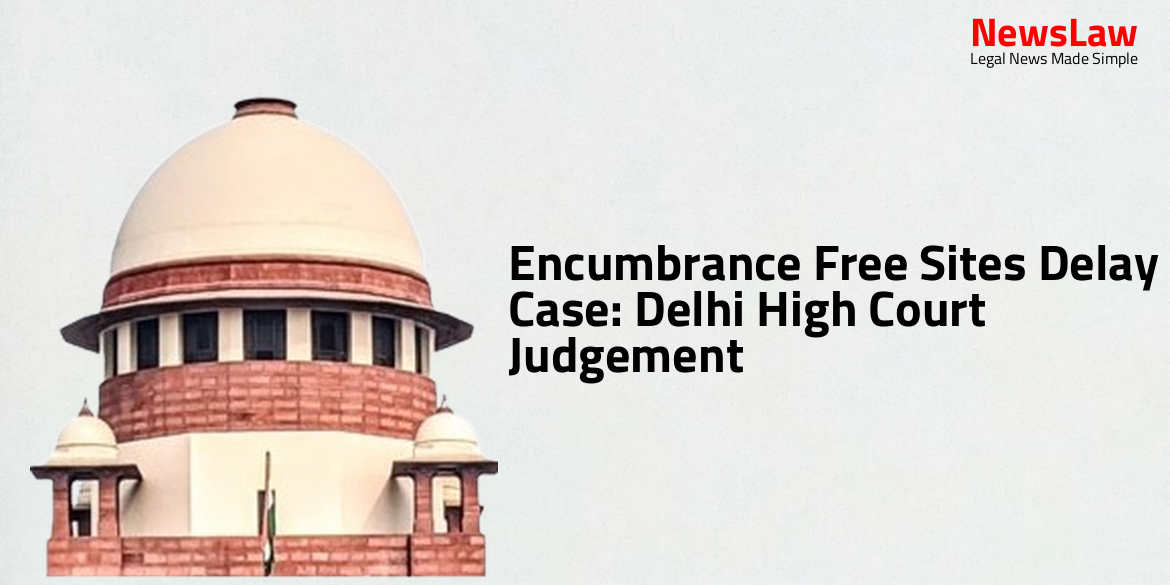The Kerala High Court’s landmark judgment in the case involving Commissioner of Income Tax vs Kerala Transport Company settled a significant liability estimation dispute. This judgment brings clarity on the relevant legal aspects and effectively resolves the matter for the concerned parties. The Supreme Court’s recognition of provisions for past events and the Tribunal’s validation of unsettled claims provisions play a pivotal role in this case. Stay tuned to delve into the details of this momentous legal decision!
Facts
- The Kerala High Court’s judgment in Commissioner of Income Tax vs Kerala Transport Company settled the issue in the estimation of the respondent.
- The judgment provided clarity on the relevant legal aspects that were in dispute.
- This judgment effectively resolved the matter at hand for the concerned parties.
Issue
- The appellant contested the ITAT’s decision to delete the disallowance of provision for unsettled claims outstanding as of March 31.
- The appellant argued that the provision was ad-hoc and that the assessee had already been allowed a special provision as per Rule 6E of the IT Act.
- The contention was that the provision should be allowed in the year when it materializes, not in the year under consideration.
- The appellant seeks to question the ITAT’s deletion of the disallowance based on the above grounds.
Arguments
- Appellant’s fundamental submission is that provision for claims incurred but not reported is in accordance with IRDA Regulations.
- The appellant is an insurance company bound by such regulation.
- Tribunal considered the contention that provision for unsettled claims is not ad hoc but a record of all outstanding claims lodged by policyholders.
- The main issues revolve around provisions for unsettled outstanding claims and Incurred But Not Reported claims.
Analysis
- The Supreme Court emphasized the need to recognize provisions for liabilities based on past events and the probability of an outflow of resources to settle those obligations.
- The Tribunal upheld the view that provision for unsettled claims was not a contingent liability but a valid provision made based on actual communication received from policyholders.
- The concept of historical trends and the justification for making appropriate provisions were acknowledged in the judgment.
- The warranty provision for valve actuators was deemed necessary due to the historical trend of defects being detected, indicating a present obligation for the company.
- Provisions for IBNR reserves in the general insurance business were based on actuarial methods and a study of outstanding claims, emphasizing the importance of certified estimates by the Appointed Actuary.
- The judgment highlighted the distinction between incurrence of a liability and its quantification, emphasizing that reliable estimates could be made for future obligations.
- The necessity of recognizing warranty provisions based on past experience and historical trends was emphasized for accurate estimation and deduction under the Income Tax Act.
- The Tribunal accepted the assessee’s claim regarding warranty liability, considering it definite and quantified based on historical data.
- A provision is recognized when there is a present obligation, probable outflow of resources, and a reliable estimate of the obligation amount can be made.
- Liability arises from past events, and an obligating event creates an obligation leading to an outflow of resources.
- Recognition of liability requires not only a present obligation but also the probability of an outflow of resources.
- Claims pertaining to unexpired warranty periods can be estimated and provisioned for based on historical trends.
- Proper accounting systems are necessary for capturing sales, warranty provisions, and incurred expenses for accurate provisioning.
- Estimation of warranty provision should be based on future warranty expenses at year end.
- The High Court affirmed the Tribunal’s decision allowing deduction under Section 37 of the 1961 Act for warranty liabilities.
- Consideration of precepts of reasonable estimation in liability quantification.
- Utilization of historical trends and actuarial methods for estimation.
- Adherence to IRDA Regulations in the estimation process.
Decision
- The appeal was allowed.
- The judgment under appeal was set aside.
- The appeals failed and were dismissed.
- No error was found in the view taken by the Tribunal.
Case Title: PRINCIPAL COMMISSIONER OF INCOME TAX 1 Vs. M/S CARE HEALTH INSURANCE LIMITED (EARLIER KNOWN AS M/S RELIGARE HEALTH INSURANCE CO. LTD.) (2024:DHC:4616-DB)
Case Number: ITA-290/2024



